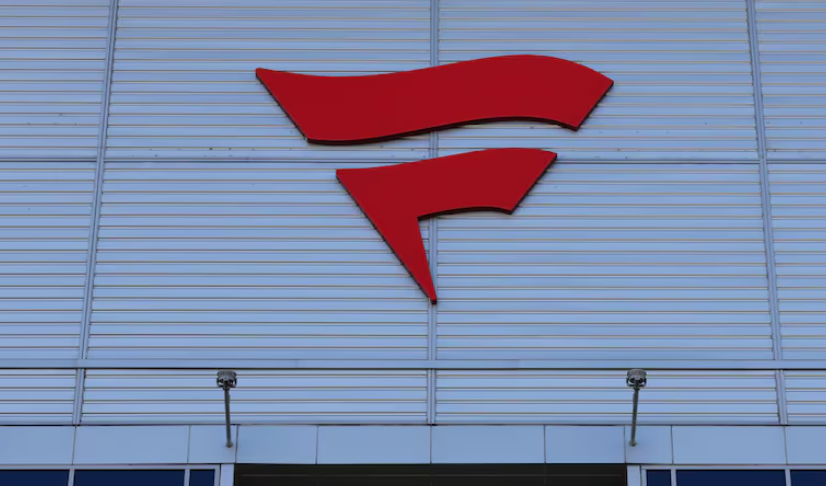
Trading Card Titans: Panini and Fanatics’ Legal Showdown Heats Up
In a legal saga worthy of its own trading card series, Panini and Fanatics, two behemoths of the trading card universe, find themselves embroiled in a legal showdown that promises high drama—and potentially high stakes for the future of trading cards. The courtroom drama kicked into gear when Fanatics, with the zeal of a collector unearthing a rare rookie card, snagged exclusive licenses for NFL and NBA trading cards, leaving Panini feeling sidelined and compelled to shuffle into court with an anti-trust lawsuit in hand.
Filed in 2023, the lawsuit accuses Fanatics of wielding its newfound licenses like a sharp-edged sword, attempting to monopolize the trading card market by pushing aside competitors with the deft hand of a veteran card player. Fanatics, not one to let accusations pass by without a riposte, countersued Panini. Their counterpunch? That Panini had engaged in acts of meddling that a mischievous “House of Cards” character might admire.
In a recent twist, a federal judge decreed that both companies had presented arguments sturdy enough to merit further legal exploration. It’s clear that this duel is far from reaching its epilogue. But like any gripping plot, the story is peppered with little surprises along the way. On Monday, Judge Laura Swain of the Southern District of New York laid down a ruling that felt like a justice gavel slicing the air, telling both parties to brace for the next rounds in their legal chess game.
Swain examined Panini’s anti-trust allegations with the scrutiny of a collector using a magnifying glass to verify the authenticity of a cherished card. To Fanatics’ chagrin, she decided that Panini had presented adequate evidence suggesting that Fanatics might indeed have monopolistic leverage over the trading card market. This potential market monopoly could allow them to set prices with the nonchalance of a seasoned auctioneer.
But not all of Panini’s claims flickered with equal brightness. Their damages claim—essentially arguing that Fanatics’ antics had left Panini with more than just bruised egos—was unceremoniously tossed out. The judge pointed out that Panini, being one of the dominant players still holding the cards, might be benefiting from the current market skirmishes in ways they hadn’t fully realized.
Meanwhile, Fanatics’ claims of unfair competition—assertions that Panini was like the meddlesome villain crashing an orderly banquet—didn’t hold water in Swain’s court. Instead, she noted that Panini had disrupted Fanatics’ business plans, but without trampling over any competition laws. When it came to allegations of celebrity-level employee poaching, however, Swain admitted Fanatics had a point. Their claim that Panini deterred its staff from jumping ship with threats of legal action stood firm, providing a solid nexus for Fanatics’ grievances.
Looking at the road ahead, the phrase “long legal battle” deserves its own trading card. As both lawsuits march forward, the process aptly named discovery awaits. This phase promises more intrigue than a limited-edition release, involving sworn testimonies from executives as though they’re enacting courtroom drama, internal documentation scrutiny akin to unearthing hidden treasures, and depositions of key witnesses that might resemble showdown duels at the O.K. Corral.
With no conclave date stamped on the horizon, the duration of this courtroom contest could extend uncomfortably. Months, or potentially years, could unravel like an epic trilogy, leading well into the trading card calendar of future seasons.
For card collectors, the lawsuit’s outcome could shuffle the decks in monumental ways. For now, the average collector might not feel the earth tremor beneath their treasured collections, noticing instead an uptick in NBA and NFL cards rolled out by Topps, another jewel in Fanatics’ crown. But whispers abound—should Panini prevail in their anti-trust suit, new contenders might waltz into the market, inviting fresh competition and card variants like joyous blooms.
Conversely, if Fanatics triumphs and Panini is found to have meddled where mischief was unwarranted, the financial fallout might clip Panini’s wings, altering its stronghold status. So, are collectors destined for a wider array of choices, or will Fanatics cement its dominion even further—turning the market into a gilded yet exclusive gallery?
Right now, all eyes are on this courtroom clash—a tempest roaring over trading card waters. As collectors clutch their decks and investors glass-blow into speculative bubbles, they remain glue-eyed on how this high-stakes duel might etch its legacy across the fun and fortunes of tomorrow’s trading card industry. Every jab and counter-jab promises to reshape more than a mere hobby; it could redefine an entire universe where, just like a rare card, even the smallest detail holds tremendous value.